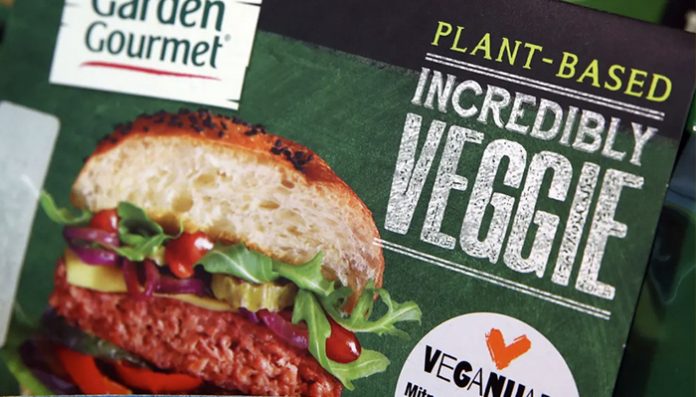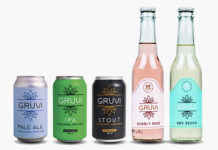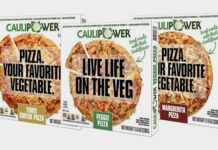The European Parliament voted on proposed amendments to the Common Agricultural Policy (CAP) which would affect how plant-based products can be labelled in the EU.
MEPs voted against the so-called ‘veggie burger ban’, which would ban the use of meat-related terms, such as “burger” and “steak”, for plant-based products. However, they voted to tighten restrictions on the labelling of plant-based dairy alternatives which would prevent the use of dairy descriptors, such as “yogurt-style” or “cheese-alternative”, for non-dairy products.
The popularity of plant-based products has risen sharply in the last few years as consumers are becoming more conscious about the health impact and carbon footprint of the meat and dairy products they consume. A recent report by ING has found that European retail sales of meat and dairy alternatives have grown by almost 10% per year between 2010 and 2020 and it is estimated that the plant-based alternatives food market will be worth €7.5 billion by 2025. Last month’s vote by the European Parliament on the labelling of plant-based products is therefore timely. For plant-based producers, the vote raises two key issues:
1. Ban on the use of meat-related terms
The Committee on Agriculture and Rural Development proposed an amendment (no.165) to restrict the use of meat-related terms, such as “burger”, “sausage” and “steak”, to meat products only. The upshot of this being that plant-based products would no longer be able to use meat-related labels – for example, a veggie burger could no longer be labelled as a “burger” (instead there was some suggestion that it should be called a “veggie disc”).
The rationale for the proposed ban, particularly by meat lobbyists, was that use of meat denominations for non-meat products would risk confusing consumers and that use of such terms amounts to a “cultural hijacking” of the meat industry. Opponents of the ban have disputed that there would be any significant risk of consumer confusion and have said that it would directly cut across the European Green Deal (which aims to make Europe carbon-neutral by 2050) by making it harder for consumers to choose sustainable food products. Ultimately MEPs did not agree with the meat lobby and voted against the ban (by a vote of 379 to 284).
Interestingly, however, at a national level rules on meat-related labels are not consistent across Europe with some countries separately introducing their own bans. On 27 May 2020, the French National Assembly gave the final green light to a law that would prohibit the use of names commonly associated with animal foodstuffs for labelling and marketing products containing plant-based proteins. Producers of plant-based products will therefore need to carefully consider local laws on food labelling when exporting across the EU. It is also not clear how any such restrictions might apply to ‘alternative meats’ such as lab-grown meat developed from animal cells (watch out for our upcoming article on alternative meats soon!).
2. Ban on use of diary descriptors
The European Parliament has voted in favour of an amendment (no.171) which would place further restrictions on the use of dairy food labels for plant-based products. The use of dairy terms, such as “cheese”, “yogurt” and “milk”, for non-dairy products is already banned within the EU, following a decision by the CJEU in 2017, however, under the new amendment, these restrictions would go one step further by also prohibiting terms that liken plant-based products to dairy, eg “yogurt-style”, “butter alternative” or “cheese substitute”.
The European Parliament’s vote to ban the use of dairy descriptors remains subject to the decision of the Council, however, if the amendment is adopted, producers of plant-based dairy alternatives in the EU will have to think carefully about how to label their products going forwards and avoid any dairy descriptors. Producers will also need to review their existing product lines to identify and remove any such descriptors that may fall foul of the restrictions. In practice, given the earlier ban in 2017, producers may find that many of their products are already compliant and will not require further change.
Interestingly, if the regulation is not adopted before the end of the transition period on 31 December 2020, it will not be directly effective in the UK and, therefore, the restrictions will not apply in the UK (they will, of course, still apply to UK producers exporting to the EU). This could result in a situation where the labelling rules for non-dairy products are tighter in the EU than in the UK. Producers will therefore need to consider how this might impact their labelling/packaging strategies – for example, whether to diverge for different markets or maintain a consistent approach across both the EU and the UK. Ultimately, this is likely to be a question of potential benefit versus cost (and inevitable logistical difficulties!).
Whatever the outcome from the Council (and we will report back in due course), one thing seems certain – given the growing global demand for plant-based products the category is likely to continue thriving no matter what labelling restrictions are imposed.







